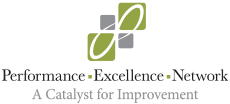
Love them First: Lessons from Lucy Laney Elementary — Apr 2022
April 18, 2022
Minneapolis is a great place to live — great outdoor attractions and park system, a world class theater scene, all major sports, higher than average income and population health outcomes, world class educational institutions, a vibrant business community. I could probably go on. But the last couple of years have been extremely difficult for the city: the pandemic, followed by economic challenges, civil unrest due to racial inequities, and other factors have really exposed the challenges that this city — any big city, quite honestly — are facing. And the challenges are felt unevenly, impacting minorities and certain neighborhoods worse than others. Crime is up; health disparities are increasing; the educational achievement gap is widening.
I offer all of those details, not as a political statement (there are many root causes that lead to these outcomes and many valid opinions on how to address them), but to paint the picture of our reality and to offer some context as to just how difficult it must be to be a principal in a K12 school in a neighborhood that’s at the center of all of these challenges.
Mauri Friestleben, former principal at Lucy Craft Laney at Cleveland Park Community School (and now principal at Minneapolis North High), has been credited for making incredible strides at this challenged elementary school. Under her leadership, Lucy Laney has begun a transformation against all odds — this is a story about the power of leadership, about valuing people and about building community. Mauri is opening keynotes at the PENworks 2022 conference, coming up in a few weeks.
Lucy Laney Elementary is in the heart of North Minneapolis. An estimated 90% of children in the school live in poverty (99% on free and reduced lunch), according to federal standards; the student population is 87% African American (and 94% non-White); 24% receive special education; 15-20% are considered homeless or transient. Ms. Friestleben was principal of Lucy Laney for nearly six years. I don’t know if we can declare Lucy Laney a complete turnaround, but it is a positively trending work-in-progress. Against all odds, here are some of her leadership practices that struck me as effective – not just for an elementary school, but for any organization of any size in any sector:
- The school uses data to make decisions – in and out of the classroom — to understand and deliver on the student population’s diverse needs. Teachers plot student progress; administrators monitor aggregate performance. Leaders at Lucy Laney understand that one size does not fit all – that you can’t use the same approach for all students. Curriculum is adapted using evidence; teachers get to know students on an individual level — their needs, their tendencies, their homelife situation. Imagine if we all did that for each of our customers.
- The school partners with dozens of community nonprofits to bring services and support (and resources) to help improve educational outcomes and achieve mission.
- The school’s leadership team and educators set clear expectations (of each other and of each student) and guides each student through rituals and routines that provide structure, discipline, and systematic approaches for education and social practices. The team at Lucy Laney are proving that education is a process.
- Faculty, staff, administrators have worked to create a safe, non-threatening learning environment at the school, where students can essentially “escape” the challenges of their home life and focus on learning, developing, maturing. “Stress and trauma have long-term effects on physical and mental health for children and educators alike,” says Anne Gearity, a child mental health therapist at the University of Minnesota and Washburn Center for Children, who was brought into Lucy Laney to help the high numbers of students experiencing trauma. Chronic stress can exacerbate feelings of helplessness and defeat. “For many children, trauma is not a single event but a series of events that become persistent and even inevitable. For these children, every place holds the potential for more danger, even school. When school feels stressful, body reactions and perceptions are colored by too much stress and leave children frightened.” Part of Lucy Laney’s success is the result of leadership creating a safe environment for the kids.
- Faculty, staff, administrators truly focus on the student first. While part of that is the safety mentioned above, a bigger part of is on creating a culture that supports higher performance. At Lucy Laney, staff truly seek to understand, engage, and support students and their families. Lucy Laney has fully empowered its workforce, shifting the responsibility for student engagement to the primary teacher, allowing the teacher to know each student’s needs thoroughly (and for each student to count on the teachers). For example, staff visit every single home of the nearly 500 students at the beginning of every school year, a strategy that is critical in understanding their needs and building community and trust. Gearity: “Children do their best when they feel connected to the adults who expect them to do their best.”
Mauri Friestleben in the KARE 11 documentary: “anytime anybody sees a child that looks forlorn, lost, not taken care of – spread your arms, scoop them up, ask questions later, but love them first.”
“Love them first” is more than slogan — it’s the basis of Lucy Laney’s culture and core values. And it’s the foundation of their success.
Mauri Friestleben: “Being both soft and firm, having high expectations with high support, along with having a no-excuses approach contrasted with grace, are just a few of the many balances needing to be struck when leading any school, but especially a school like Lucy Laney. Socially and generationally, our children of color, primarily Native and African American children, have been recipients of a hostile educational American experience. Minimizing that hostility to maximize their success within that experience is nothing short of a lifelong commitment and passion. Enlisting a group of people, staff, who also embody and live out that same belief is not about race, religion or upbringing. It is rather about character and grit. Together, we can create a highly functional educational environment that loves first, yes, but then provides a robust and rigorous academic experience second.”
Is it working? Not all of Lucy Laney’s metrics have improved, but right before the pandemic, the school did celebrate six consecutive years of improving test scores; suspensions decreased 90% over five years (from a peak of 700 in a year); and attendance has improved for several years in a row. Lucy Laney was the subject of an award-winning KARE 11 documentary, which aired in 2019 (you can watch the full 90 minute piece here).
Just before the pandemic, Ms. Friestleben became principal of Minneapolis North, where she hopes to replicate the success. She will be the opening keynote of PEN’s annual conference May 12-13. This year’s conference theme is CHARTING THE COURSE: Leading Forward, reflecting our collective desire to emerge from the challenges of the last two years into a brighter, more optimistic, more successful future. The event will feature more than 25 local, regional and national leaders, each sharing insights, tools, methods, best practices in visionary leadership, valuing people, personal and organizational resilience, and innovation. The conference will be hybrid, hosted in person in the Twin Cities and streamed online across the region and nation. It will be an incredible learning, networking, motivational experience. Early Bird deadline ends tomorrow night (April 22); use promo code “EBrollback” to reset Early Bird rates, taking $100 off of each ticket class. More information is here.
I’ll leave you with this…most of you reading this are not educators (some are, and thank you for your great work!). But the insights coming from Lucy Laney transcend organizational type. Performance excellence — in a school, in a hospital, in a nonprofit or governmental agency, and certainly in a business — begins with visionary leadership. Excellence requires effective, authentic, consistent leadership, who are responsible for creating a culture that encourages and facilitates high performance; creates and reinforces vision; communicates effectively (including listening effectively); uses data to make decisions and improve the system; and focuses obsessively on the customer – the student, the patient, the stakeholder – the recipient of the products, services, programs, and value that the organization creates. Excellence requires process, data, strategy, among other things. But I would argue that excellence begins with people. “Love them first” is a mantra that can work in any organization.
What other insights/tips do you have regarding leadership, culture, and loving your customers? Participate in a discussion on this topic: visit our LinkedIn group to post a comment. And follow me on Twitter @LassiterBrian!
Stay healthy and never stop improving!
Brian S. Lassiter
President, Performance Excellence Network
www.performanceexcellencenetwork.org
A Catalyst for Success Since 1987!
Photo credit lovethemfirst.com, KARE 11





